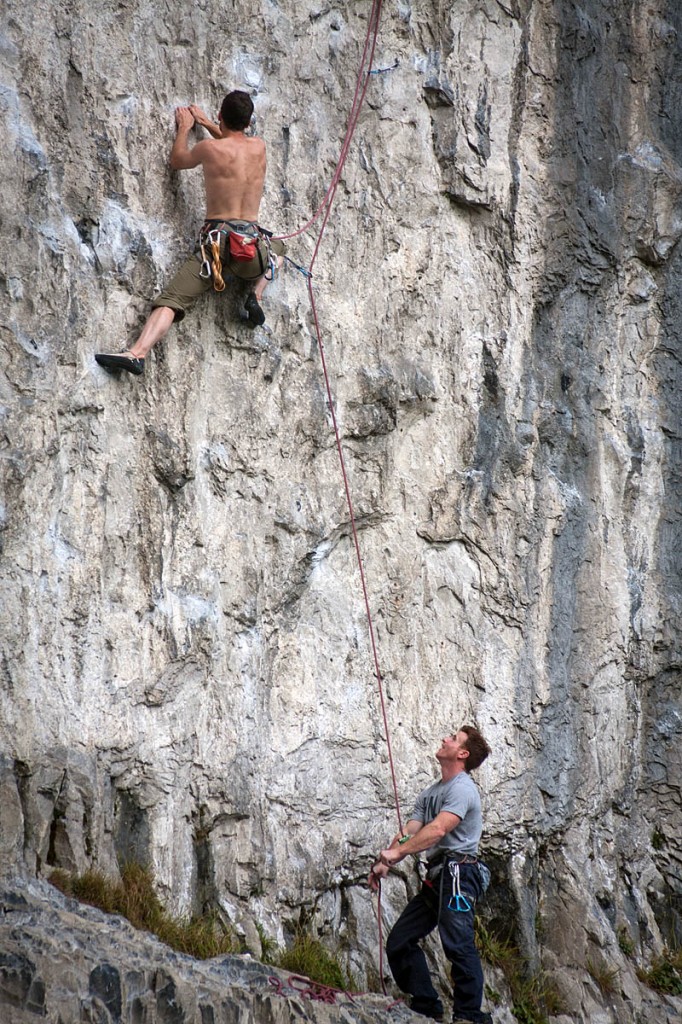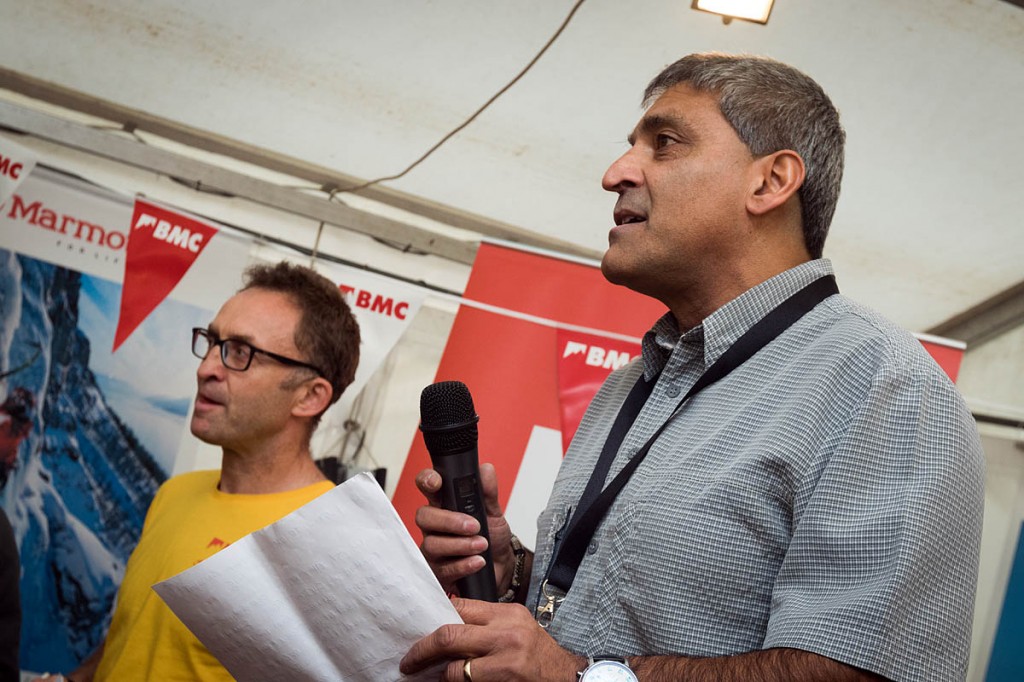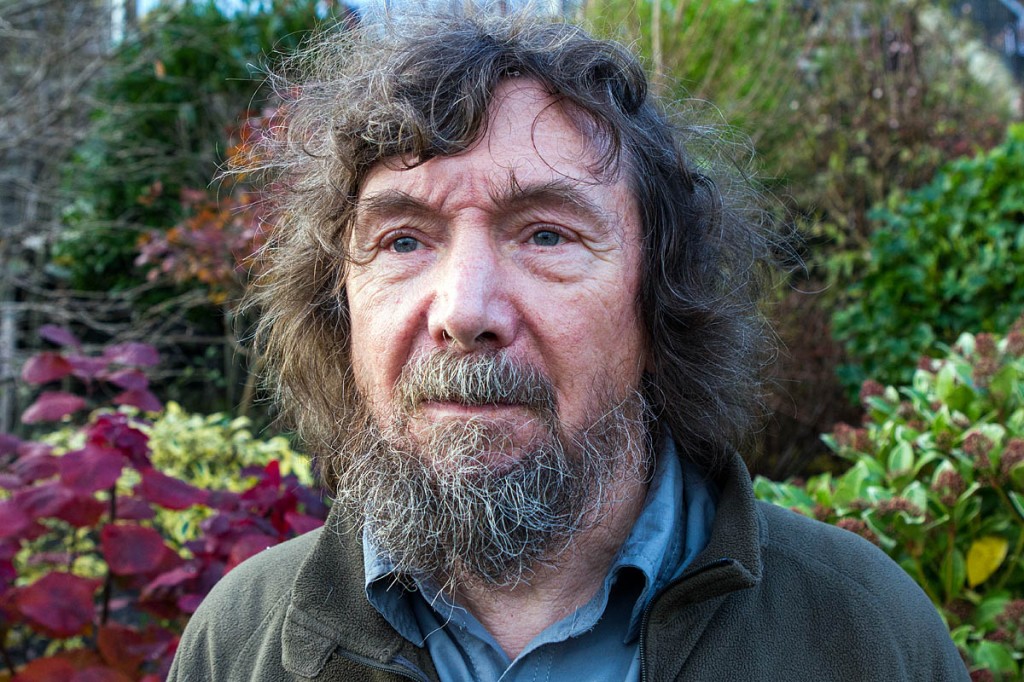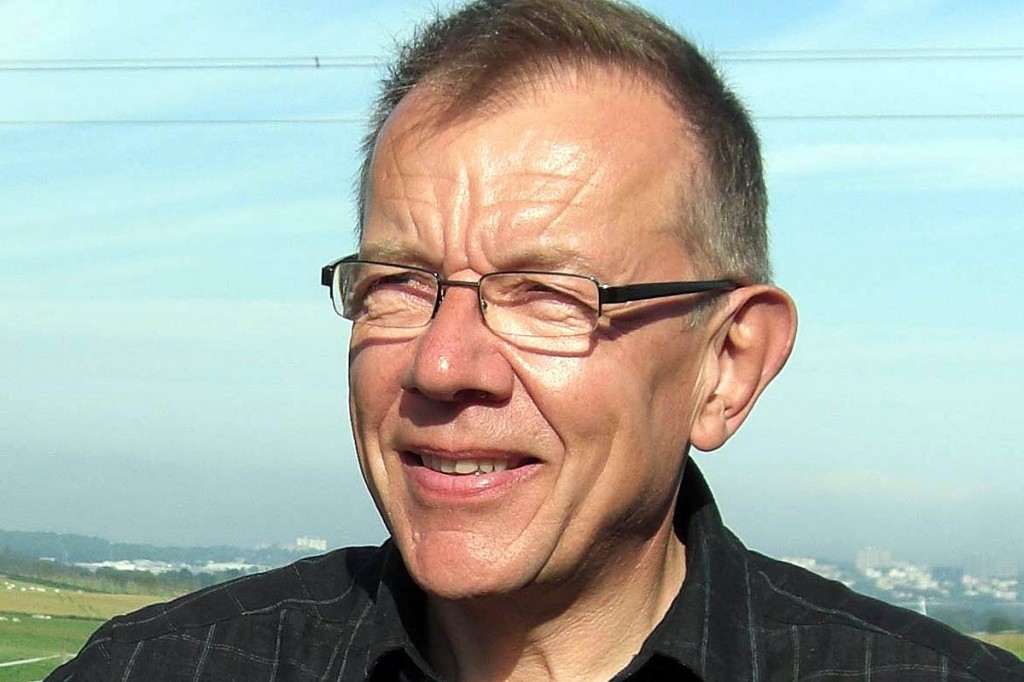Two bodies that represent climbers, hillwalkers and mountaineers throughout Britain have announced changes to their names.
The British Mountaineering Council will be known as Climb Britain, while the Mountaineering Council of Scotland is to become Mountaineering Scotland.
The Manchester-based BMC which, despite its name, represents members in England and Wales, will also introduce a new name for its operation in Wales, Climb Cymru.
The rebranding will be used for the two arms of the organisation, though its official name will still be the British Mountaineering Council.
The funding for the change, which involved two consultancy firms, was provided by Sport England. The rebranding process began 12 months ago and could take a further three to 12 months to complete, with some changes occurring immediately, the BMC said.
The BMC – Climb Britain – currently has 82,000 members, made up of 56,000 individuals and a further 26,000 people from the 300 affiliated mountaineering clubs. Many of these are primarily hillwalkers, a large number of whom will have joined the BMC as part of the compulsory registration process for outdoor qualifications such as the Mountain Leader Awards and Hill and Moorland Leader Award.
Climb Britain president Rehan Siddiqui said: “Many people have joined the BMC over the years in order to undertake a mountain training award.
“Doing an outdoor course is a great way to get into the sport and we will be working closely with our partners in Mountain Training to ensure our new identity is clearly explained and understood amongst this extremely important segment of membership.”
Dave Turnbull, the organisation’s chief executive since 2002, said: “The point of the BMC was always to stand up for the rights of climbers and hillwalkers, giving them the support they needed to enjoy these amazing activities.
“And none of that will change as we become Climb Britain.
“If the government tries to introduce a restrictive piece of legislation, we’ll be there to fight it. If we have problems with landowners, we’ll be there to negotiate access.
“Our core work for members will remain unchanged; we will remain fully committed to promoting cliff and mountain conservation, advising on good practice, facilities, training and equipment.
“The word ‘climb’ is evocative, something ingrained in us as children when we climbed our first tree or hill. It’s also a word that unites hillwalkers and all forms of climber.
“Now, whether you’re climbing a hill, a snowy mountain, a vertical rock face or an indoor wall, Climb Britain will be there to help.”
Outdoors expert, writer and walker Chris Townsend, who acted as hillwalking ambassador for the council, said: “For me, the BMC has always been about two things: firstly, protecting and campaigning for access and for the conservation of the hills, and secondly, promoting hillwalking and encouraging more people to try it.
“Now, with this name change, it’s very important that Climb Britain represents all hillwalkers and climbers, including those new to the pursuits. All hill-goers need a body that defends access and works to protect the hills.”
The Mountaineering Council of Scotland said it had consulted members over its name change.
Chief executive David Gibson said: “The MCofS has represented the interests of its clubs and members since 1970. We are proud of our heritage and achievements, but we recognise that times are changing and tailoring our brand and communications to new audiences is essential.”
The ‘Council’ in the MCofS title originates from when it was formed as a body representing 16 mountaineering clubs. Since then it has grown considerably, to more than 13,000 members and 140 affiliated clubs.
Mr Gibson said: “Our reach and ambitions have understandably grown in the last half century. We value our current members greatly, but recognise that they represent a modest proportion of the many thousands who enjoy Scotland’s fantastic mountains, and who can benefit from our work safeguarding access, promoting mountain skills and safety, developing our sport and protecting the mountain landscape.
“In September 2015 we launched ClimbScotland, an innovative brand which is succeeding by inspiring more young people to climb, enjoy the sport, and learn how to develop their skills.
“We’ve learned from our experience with ClimbScotland that a simple and progressive brand can enable us to communicate our key message that mountaineering activities, hillwalking and climbing, and our membership offer are accessible to all.
“While we will retain the registered company name Mountaineering Council of Scotland, Mountaineering Scotland will be our future trading name, complementing ClimbScotland, which is our brand for young people, and we will introduce this progressively in the coming months.”
The BMC said its new name will have official launch events at the Kendal Mountain Festival and on 2 December, the 72nd birthday of the BMC. The BMC has faced criticism that it is climber-centric. Appointments such as former The Great Outdoors journalist Carey Davies as hillwalking officer were seen as counters to that view.
Television presenter Mary-Ann Ochota said: “I’m a hillwalking ambassador for Climb Britain and I see my role as encouraging ordinary people to get out and enjoy the hills and mountains.
“You don’t need to be a world-class athlete or a rock-climbing daredevil to be part of the club. Hillwalking is a key activity for loads of members and their families. It’s often the first activity many people get involved with when they go to the mountains, and it’s the easiest to get started with.
“The BMC, now Climb Britain, do a fantastic job lobbying for access, and working hard to raise awareness and support for important campaigns, like Mend Our Mountains. They have a network of clubs, where like-minded people can meet and adventure together.
“And they subsidise skills courses with the National Mountain Centre at Plas y Brenin in Snowdonia, helping more people get confident and try new things in an affordable and safe environment.
“Britain is a small island, but it offers a lifetime of adventure. But it doesn’t need to be the North Face of the Eiger, or a bouldering world championship you set your sights on. It could be the hills of the Peak District, or the Brecon Beacons, or the climbing wall at your local leisure centre. It could be a half-day stroll with the kids and a picnic.
“But set your goals and get climbing.”
David Gibson added: “It is important for every organisation to anticipate trends and changes in consumer behaviour. We work in partnership with the BMC on a range of activities and this work will expand further if competition climbing is confirmed as an Olympic sport in the next month.
“We welcome the fact that the BMC has made clear that Climb Britain covers their existing territory of England and Wales and that there is no change in their remit.”
In 2009, the then 74-year-old Ramblers’ Association ruffled a few bobble hats when it ditched both its apostrophe and its association to become simply The Ramblers.




Keith Gillies
25 July 2016It looks like Scotland have it right but England and Wales have it wrong again. It's difficult to find an all encompassing word, but mountaineering is certainly better than climbing if you want to engage the wider range of hill walkers and General outdoor folk. Climbing sounds like what it is- a specific element of the broader agenda and certainly little connection with the training courses such as Lowland, Hill and Moorland and Mountain Leader - No mention of Climbing Leader ?
Crib Goch
26 July 2016Confusing pointless demeaning name change
npexton
26 July 2016Very English decision - It's not Britain, it's England and Wales. Unless The BMC are looking ahead a couple of years to when Scotland has become independent, which just leaves Northern Ireland as the apparently invisible part of Britain.
Brian Downes
26 July 2016Climb, Climb, Climb....here we go again...what about BMC members who are walkers?
Mountaineering would have been better. Big mistake, and no consultation with membership that I am aware of.
Owain Glyndwr
26 July 2016Climbers, mountaineers and walkers in Wales should demand that 'Climb Cymru' or preferably, Mynydda Cymru maybe should break away from the BMC and stand alone to match the growing nationhood in Wales. The colonial patronisation of Wales is out of date and demeaning - Wales needs its own bodies so as to stand alone as a proud European nation.
OutdoorsAndy
27 July 2016Got to admit, I like the Scottish name change, (makes it simpler), and am saddened by the BMC change. It pigeon holes it to climbing, even if that was not the intention, and the BMC was a well know TLA ;D
Agreed with Brian 100%, Mountaineering would have been better! A PR disaster and one I am left struggling to understand.
Why?
27 July 2016Unbelievable. Terrible choice of name and no doubt a fairly hefty cost in changing to it. Should have stuck with 'Post Office'.
Margaret
28 July 2016Could it be commercial management at work.
Parky
30 July 2016Similar to what happened to the British Canoe Union that became British Canoeing, followed by federalisation into Canoe England/Wales/Scotland/Northern Ireland. Agree with much of what has been said - confusing and rather pointless except to those in the world of politics and marketing.